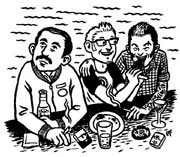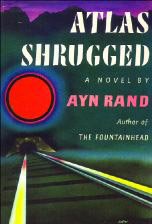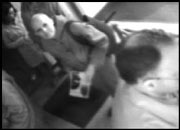The crowd who will determine our city’s economic future eats at a converted liquor store in Georgetown called Stella Pizza & Ale.
The place has a bar, a jukebox, and some pool tables, and it doesn’t close until 2 a.m. Its immediate neighborhood is a dilapidated industrial district, known mainly for being the place that trains pass through on their way into the city.
It’s the kind of old neighborhood that economist Richard Florida calls “authentic.” Authenticity and energy, according to Florida, attract creative individuals to certain areas. And a “creative class”—composed of artists, musicians, writers, inventors, architects, and entrepreneurs—will carry the next wave of economic prosperity in this country, Florida predicts.
Florida, 44, is a professor of regional economic development at Carnegie Mellon University and author of The Rise of the Creative Class. The book has stirred controversy, mainly because Florida argues that a city that attracts diversity—and, namely, large numbers of gay people and bohemians—will do better than a city that does not.
“Creativity is a font of economic growth,” Florida said while he was in Seattle last week. “Where does it come from? Not from a steel factory or from a ground well. It comes from human beings. People. We are the carriers of creativity.”
This creative class is not attracted to gentrification and homogeneity, Florida’s research shows. “Diversity is a key source for attracting the people who create wealth. The economic future of a city is dependent on whether it can attract the creative, talented people,” he said. According to his research, “The places that are poised for growth are those that are most open to diversity.”
Based upon Florida’s numbers, Seattle is poised for an economic resurgence— in large part because we have a vibrant gay community, a definable music scene, and good restaurants. The creative class thinks that “street-level cafes and a music scene are much more important than having a ballet and a sports stadium.” Florida thinks that more money should be used, for example, to support graffiti artists and hip-hop, with less going to the symphony.
While that alone upsets traditional bourgeois concepts about what defines a city’s culture, the biggest point of contention is Florida’s insistence that the gay community will play a central role in the new creative age.
The creativity index, which Florida uses to determine a city’s potential for economic vitality, is a composite of many smaller indexes: High-Tech, Bohemian, Working Class, Melting Pot, Gay, and others.
Seattle is ranked fifth overall, behind San Francisco, Austin, San Diego, and Boston.
Ben Wolters, interim director of Seattle’s Office of Economic Development, is not ready to advise cutting funding to the cultural establishment in favor of spending on fringe arts. Wolters, for one, disagrees with Florida’s belief that large malls, sports stadiums, and corporate retail have no place in the new economy.
“We can have all of these things,” Wolters says. “I don’t see sports stadiums going away, especially with our current love of the Mariners.”
Some, like Paul Sommers, a senior research fellow at the Northwest Policy Center, debate the validity of using the gay population as a measure of diversity in a neighborhood. But Ben Wolters acknowledges that it’s “a common perspective to associate a creative community with the gay community. There seems to be an overlap.”
And Florida argues that creative people are often mobile, allowing them to leave anywhere that’s become gentrified or intolerant in favor of more edgy, diverse, “authentic” areas.
Openly gay state Rep. Ed Murray, D-Seattle, agrees. “We’ve got to pass nondiscrimination legislation at the state level if we want to attract entrepreneurs and creative people to our environment. When you have nondiscrimination laws in place, you create an atmosphere that attracts people.” The city and the county both have nondiscrimination laws protecting gays and lesbians in place. The state does not.
At Stella Pizza & Ale, diversity is a given. Industrial laborers drink beer and socialize with queer artists, wealthy computer programmers, and destitute rock musicians. “It’s in a real neighborhood, a diverse neighborhood,” Florida says about Stella Pizza & Ale, “not a prepackaged neighborhood.”
Florida says the way he’s treated in different cities is telling. “When I go to a city to talk about the book, and they say, ‘Wear a tie and don’t talk about the gay thing’—when I go to a city like that, I know it’s doomed to decline.”








